The Critical Role of Clinical Data Management Systems in Medical Device Development
- Jessica R.
- March 27, 2024
- Edited March 27, 2024
Table of Contents
In the rapidly evolving world of healthcare and medical advancements, the significance of robust and efficient data management cannot be overstressed. At the heart of this crucial process lies the Clinical Data Management System (CDMS), a pivotal tool that ensures the integrity and accuracy of data collected during clinical trials. This post aims to shed light on how CDMS plays an indispensable role in developing medical devices, guiding through the intricacies of this process with a professional yet easygoing approach.
The Foundation of Medical Device Innovation
First, let’s delve into why clinical data management is a cornerstone in the medical device sector. The journey from a conceptual device to one that is fully operational and market-ready is fraught with challenges. Key among these is the management of vast amounts of clinical data. A CDMS helps organize this data and ensures it meets the stringent regulatory standards set by authorities. Doing so paves the way for smoother approval processes and quicker market entry, which is essential for the success of any medical device.
Moreover, the accuracy and reliability of data are paramount. Any errors can lead to setbacks, increased costs, and, most critically, potential patient safety risks. Therefore, a CDMS acts as a guardian, maintaining data integrity through every phase of clinical trials.
Enhancing Efficiency and Accuracy
Now, let’s discuss how clinical data management directly impacts efficiency and accuracy. The sheer volume of data generated during clinical trials is overwhelming. A CDMS streamlines data collection, storage, and retrieval processes, making it easier for researchers to access and analyze the necessary information. This speeds up the trial phases and enhances the quality of data analysis.
Additionally, a CDMS incorporates various checks and balances to ensure data accuracy. This includes automated error-checking mechanisms that flag discrepancies for review. Such features reduce the likelihood of human error, making the data more reliable for regulatory submissions and decision-making.
Facilitating Regulatory Compliance
In transitioning to another critical aspect, regulatory compliance is a significant hurdle in the development of medical devices. Clinical data management systems shine here by offering structured data management and traceability features. These systems are designed to comply with international standards and regulations, such as those set by the FDA or EMA.
A CDMS simplifies the preparation of documentation and reports required for regulatory submissions. It also ensures that data is stored securely and can be audited easily, which is a key requirement of regulatory bodies. A CDMS significantly reduces the risk of regulatory delays or rejections by simplifying compliance.
Supporting Decision Making
Moving forward, the role of clinical data management in decision-making cannot be understated. Throughout the development process of medical devices, numerous decisions need to be made, from design alterations to identifying potential market challenges. A CDMS provides a centralized platform where all clinical data is accessible, making it easier for decision-makers to retrieve relevant information quickly.
This immediacy and accessibility of data mean that decisions are based on the most current and accurate information available. It enables more informed decision-making, which can lead to more effective strategies and a higher likelihood of success for the medical device in question.
Encouraging Innovation
Moreover, clinical data management systems are not just about managing data; they are also a catalyst for innovation. By efficiently managing data, CDMS frees up valuable resources, allowing researchers and developers to focus more on innovation and less on administrative tasks. This can lead to breakthroughs in medical device development, as teams can dedicate more time and energy to research and development activities.
Furthermore, the insights gained from well-managed data can inspire new ideas and approaches. The analysis of clinical trial data can uncover trends and patterns that might not have been apparent otherwise, opening up new avenues for innovation in device design and application.
Preparing for the Future
As the medical device industry continues to grow and evolve, the importance of clinical data management will only increase. Future advancements in CDMS technology are expected to offer even greater functionality, including the use of artificial intelligence and machine learning to enhance data analysis and management processes further. This will not only improve the efficiency and effectiveness of clinical trials but also contribute to the overall advancement of medical science.
Conclusion
In conclusion, the Clinical Data Management System stands as an unsung hero in the realm of medical device development. Its role in ensuring the accuracy, reliability, and integrity of clinical trial data is indispensable. By streamlining data management processes, facilitating regulatory compliance, supporting critical decision-making, and encouraging innovation, CDMS plays a critical role in bringing safe and effective medical devices to market faster.
As we look to the future, the potential for CDMS to drive further advancements in the medical device industry is immense. With each improvement in CDMS technology, we can expect to see not only more efficient and effective clinical trials but also a broader impact on the quality and efficacy of medical devices available to patients.
In the end, the key to unlocking the potential of medical device innovation lies in the effective management of clinical data. As technology evolves, so too will the capabilities of Clinical Data Management Systems, enabling a more streamlined, accurate, and innovative approach to medical device development. This progress promises not only to enhance the operational efficiency of clinical trials but also to pave the way for groundbreaking discoveries that can significantly improve patient care and treatment outcomes.

Jessica R.
Jessica is a seasoned GMP compliance consultant and technical writer specializing in pharmaceutical manufacturing, data integrity, and quality assurance. With over 12 years of experience working with global pharmaceutical firms, Jessica brings deep industry insights into FDA, EMA, and MHRA regulations.


